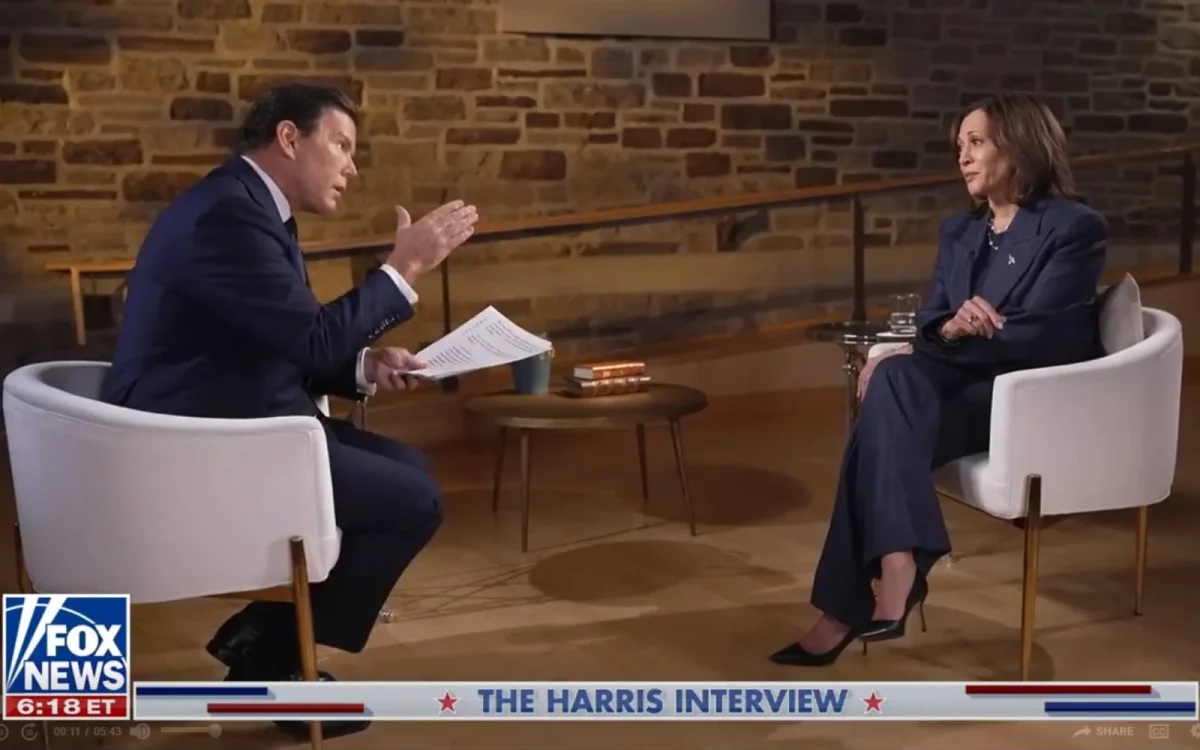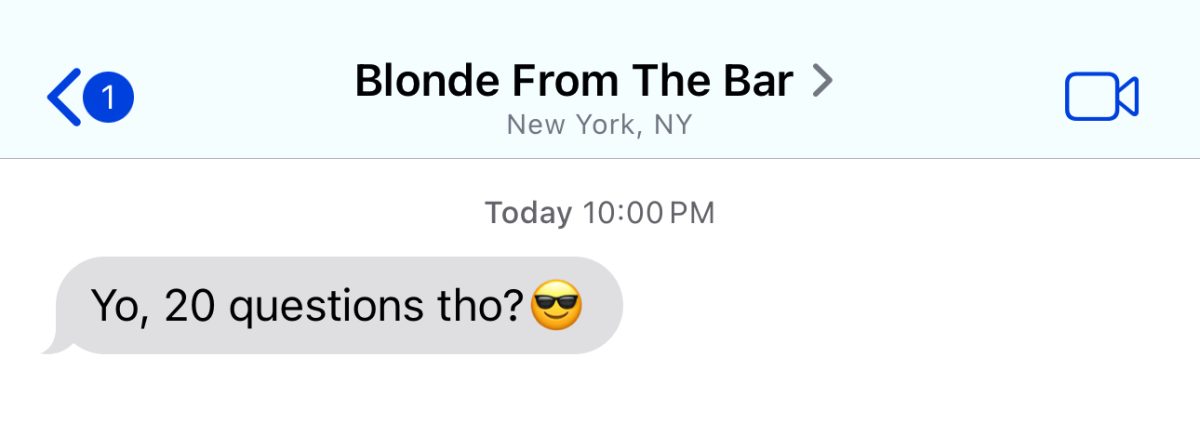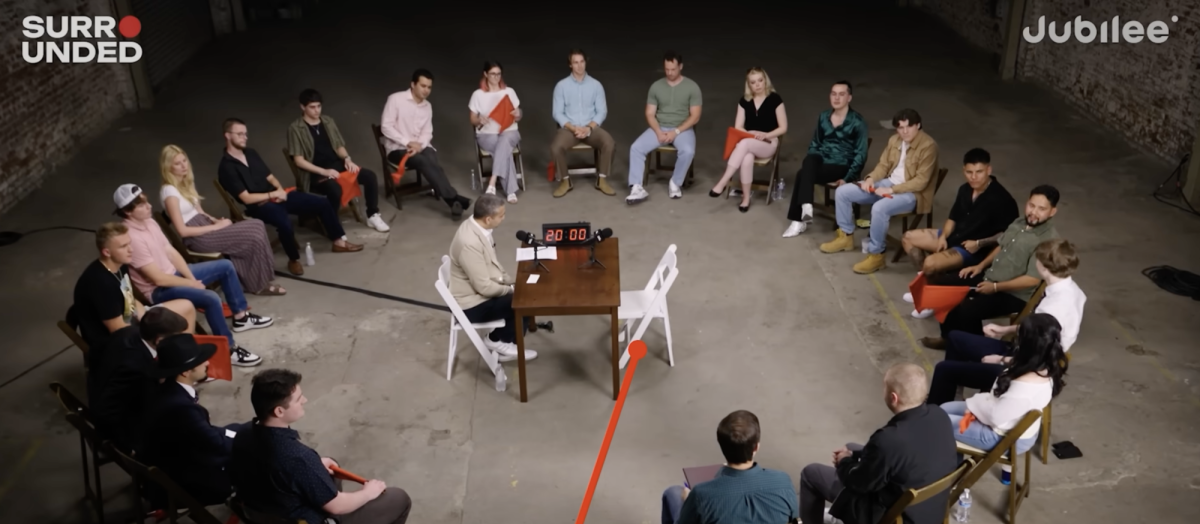On Oct. 17, Vice President Kamala Harris sat down for a challenging interview with Fox News anchor Bret Baier. The interview focused on pressing topics, including immigration, economic policy and U.S. international standing. The conversation quickly became contentious, resembling more of a debate in tone than an interview. With former president Donald Trump skipping a second official debate, this interview was seen as a way for Harris to go up against the GOP’s talking points as election day rapidly nears.
The dynamics between Harris and Baier throughout the interview were striking, with both Harris and Baier working to assert their narrative and opinion almost the entire time. Baier’s line of questioning was often accusatory, designed to cast the current Biden-Harris administration in a negative light. By continuously discussing what he perceived as Harris’ failures, Baier sought to cast doubt on Harris’ ability to lead. This interview highlighted media bias and political opinion’s critical role in helping each candidate and political party craft their narratives.
Baier’s questions were designed to put Harris on the defensive, with Baier heavily criticizing the Biden administration and questioning Harris’ role in all of it. The questions were quite obviously designed to appeal to Fox’s audience, which primarily consists of viewers with conservative viewpoints. Despite the badgering line of questioning, Harris remained assertive. She responded with an incredible level of restraint, ignoring Baier’s insinuations and redirected the discussion back to the Biden administration and her own prosecutorial success. When Harris had the opportunity to respond–despite Baier’s continuous interruptions–she emphasized the job growth and investment in infrastructure the U.S. has seen as a result of the Biden administration.
Baier created a framework reinforcing the conservative stance, highlighting Harris’ responses as vice president as insufficient and ineffective. He referred to Harris and the Biden administration as having “failed” to strategically address what he believed were mishandled key issues. In doing so, Baier subtly aimed to influence the audience’s opinion. Harris, too, leaned into this, highlighting topics that emphasized making progress and working toward unity. She repeatedly referenced that we would be “moving forward” under a Harris administration, a deliberate and optimistic response to Baier’s persistent negative positioning.
With Trump’s refusal to participate in another debate, this interview felt like the closest alternative.Without the ability to participate in a second formal debate, Harris has instead chosen to directly engage with audiences at a national level. She wasn’t just addressing Fox’s audience; she was speaking to a national one, including swing voters and independents. In today’s media landscape, these interviews are no longer just conversations; they are fighting grounds where politicians argue for control of the narrative. Harris proved that even when on the defensive, she can stand her ground and speak not only to Baier but to the millions of Americans who tuned in to watch.









Caleb Silva • Oct 25, 2024 at 12:57 pm
I’d argue Kamala was wasting time w each question as she was unable to answer a single question in adequate amount of time, especially considering she showed up 15 minutes late and left 10 minutes early. It was braier’s job to ensure Kamala finally got the tough questions without the teleprompter to help her out and to avoid her wasting time he very respectfully would remind her to answer the direct question. Her rambling and her men scrambling toget her out of the interview is a clear indicator she doesn’t have these difficult answers.